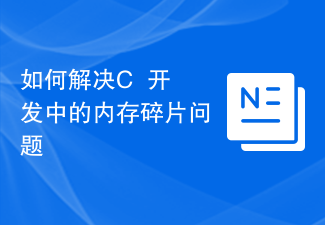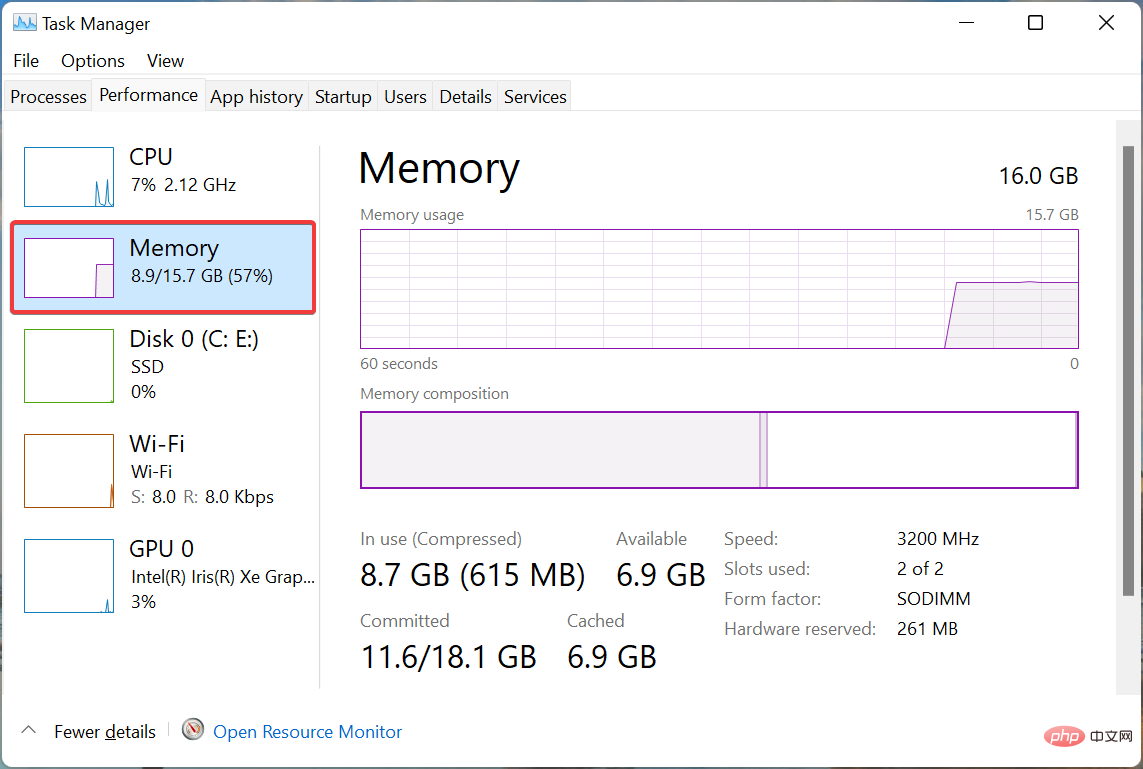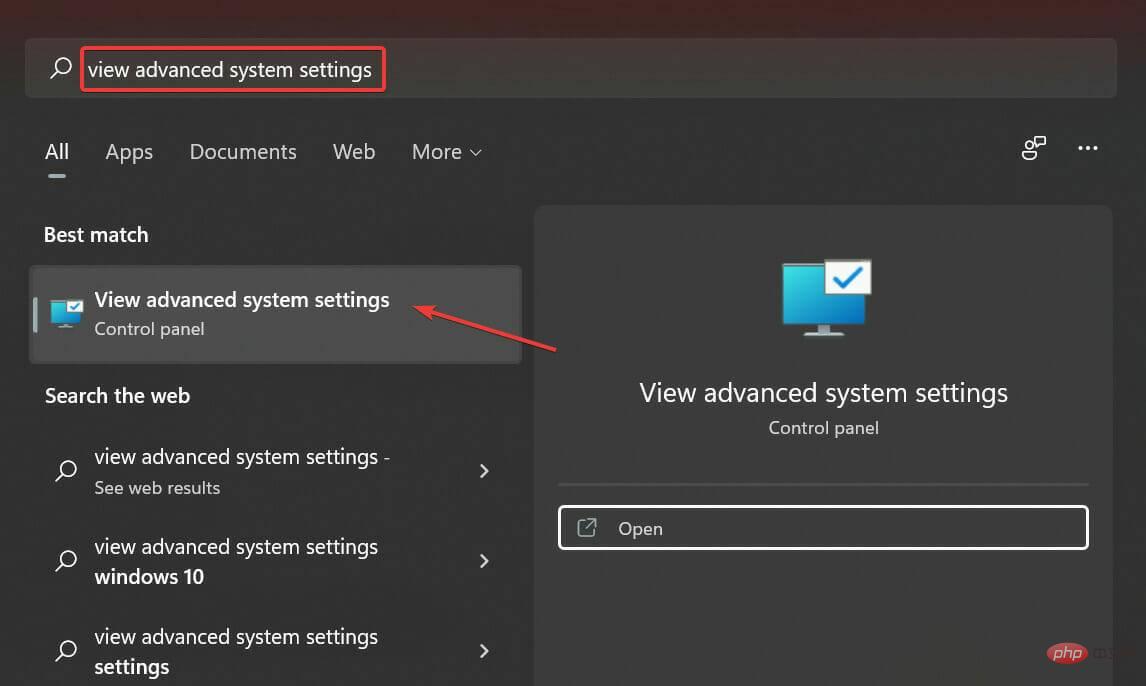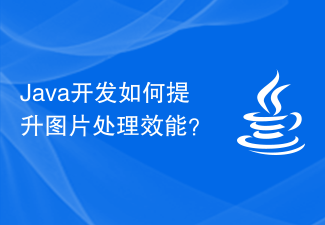 Backend Development
Backend Development PHP Tutorial
PHP Tutorial Anatomy of the underlying development principles of PHP7: Analysis of the importance and implementation of PHP memory management
Anatomy of the underlying development principles of PHP7: Analysis of the importance and implementation of PHP memory management
Anatomy of the underlying development principles of PHP7: Analysis of the importance and implementation methods of PHP memory management
In the field of PHP development, memory management is a very important topic. Reasonable and effective memory management can not only improve the performance of applications, but also avoid various memory problems such as memory leaks. This article will introduce the importance of PHP memory management and how memory management is implemented in PHP7, and attach some code examples to better understand these concepts.
For scripting languages like PHP, memory management is not an issue that developers need to actively care about. In traditional PHP versions, the PHP interpreter automatically garbage collects and releases memory that is no longer used. However, the execution efficiency of the garbage collection mechanism is not high, which is also a major bottleneck in PHP's performance.
In order to solve this problem, the PHP team introduced a new garbage collection mechanism in the PHP7 version, called "Zend Memory Manager". This new garbage collection mechanism is based on reference counting technology and adds a "cyclic garbage collection" algorithm, which periodically scans the memory status to find garbage objects that refer to each other but are inaccessible, and release them. This improvement greatly improves the performance and memory utilization of PHP applications.
The following is a simple sample code that demonstrates PHP's reference counting mechanism:
// 创建一个对象 $obj = new stdClass(); // 创建一个引用指向这个对象 $ref = $obj; // 修改原对象 $obj->name = "John"; // 分别输出两个变量的值 echo $obj->name; // 输出 "John" echo $ref->name; // 输出 "John" // 取消引用关系 unset($ref); // 分别输出对象和引用变量 var_dump($obj); // 对象还在内存中 var_dump($ref); // 引用已经被取消 // 修改原对象 $obj->name = "Tom"; // 输出对象的值 echo $obj->name; // 输出 "Tom"
As can be seen from the above code, PHP can easily manage the reference relationships of objects through reference counting. , and ensure that the object can be released correctly when no longer used. This mechanism effectively solves the problem of object memory leaks.
In addition, PHP7 also introduces a new feature called "Weak References". A weak reference is a special type of reference that does not increase the object's reference count. When all ordinary references are canceled, the object pointed to by the weak reference will be automatically destroyed. This feature can be used to solve memory leaks caused by circular references.
The following is a sample code that shows how to use weak references in PHP7:
// 创建一个对象 $obj = new stdClass(); // 创建一个弱引用指向这个对象 $weakRef = WeakReference($obj); // 分别输出对象和弱引用变量 var_dump($obj); // 对象还在内存中 var_dump($weakRef); // 弱引用存在 // 取消对象引用 unset($obj); // 分别输出对象和弱引用变量 var_dump($obj); // 对象已经被销毁 var_dump($weakRef); // 弱引用也不存在了
By using weak references, developers can manage memory more flexibly and avoid problems caused by circular references. Memory leak problem.
To sum up, the memory management mechanism in PHP7 has brought many improvements, including reference counting, circular garbage collection and weak references. The introduction of these new features not only improves the performance and memory utilization of PHP applications, but also makes it easier for developers to manage memory. Therefore, it is very important for PHP developers to have a deep understanding of PHP's memory management principles and learn to make reasonable use of these features.
-over-
The above is the detailed content of Anatomy of the underlying development principles of PHP7: Analysis of the importance and implementation of PHP memory management. For more information, please follow other related articles on the PHP Chinese website!
 如何解决C++开发中的内存碎片问题Aug 22, 2023 am 09:15 AM
如何解决C++开发中的内存碎片问题Aug 22, 2023 am 09:15 AM如何解决C++开发中的内存碎片问题在C++开发中,内存碎片问题是一个常见而又麻烦的问题。内存碎片指的是已分配的内存块在使用过程中出现断开的情况,导致可分配的连续内存空间变少,从而影响程序的性能和稳定性。本文将介绍一些解决C++开发中内存碎片问题的常见方法和技巧。一、减少动态内存分配次数动态内存分配是导致内存碎片的常见原因之一。为了减少动态内存分配的次数,可以
 如何在 Windows 11 中增加虚拟内存(页面文件)May 13, 2023 pm 04:37 PM
如何在 Windows 11 中增加虚拟内存(页面文件)May 13, 2023 pm 04:37 PM如果您在运行高端应用程序或游戏时注意到一定的延迟,则可能是RAM/内存通常运行已满。这是增加Windows11中的虚拟内存或页面文件大小的地方。虚拟内存或页面文件是最容易被误解的概念之一,围绕它有很多神话。无论其他人说什么或做什么,都必须彻底了解如何从您的计算机中获得最佳性能。在以下部分中,我们将引导您完成在Windows11中增加虚拟内存的步骤,帮助您了解其重要性以及最佳虚拟内存大小。为什么需要虚拟内存?页面文件或虚拟内存基本上是用作RAM的硬盘的一部分。当内存已满且无法存储更多数据时
 如何在 Windows 11 中重置虚拟内存(页面文件)?Apr 13, 2023 pm 11:28 PM
如何在 Windows 11 中重置虚拟内存(页面文件)?Apr 13, 2023 pm 11:28 PM如果您的计算机没有足够的 RAM 或总是满的,您可以依靠虚拟内存从物理内存中卸载非活动文件。但是,如果这不太顺利,您可能需要在 Windows 11 中重置虚拟内存。我们经常看到我们的计算机滞后,最可能的情况是Windows 11 中的高 RAM 使用率。有很多方法可以降低 RAM 消耗,但这可能会影响您的体验。而且,这就是虚拟内存可以提供帮助的地方。有时需要在 Windows 11 中重置虚拟内存,因此,必须正确理解该概念和过程,我们在以下部分中进行了讨论。虚拟内存是如何工作的,为什么我需要重
 Windows 11 停止代码内存管理:7 个修复May 04, 2023 pm 11:34 PM
Windows 11 停止代码内存管理:7 个修复May 04, 2023 pm 11:34 PM如果您的PC出现内存管理错误,您需要查看这些Windows11停止代码内存管理修复程序。如果您的系统崩溃并出现蓝屏或BSOD,您可能已经看到了Windows11停止代码内存管理错误。它将在屏幕上显示MEMORY_MANAGEMENT,表明系统内存管理存在问题。例如,它可能(或可能不)伴随着停止代码,如0x0000001A。有时您可以通过基本重启来解决错误,但它通常涉及额外的故障排除步骤。如果您在Windows11PC上遇到错误,请应用以下修复程序并运行扫描以使您的系统重新启动并运
 Java开发如何提升图片处理效能?Jun 30, 2023 pm 02:09 PM
Java开发如何提升图片处理效能?Jun 30, 2023 pm 02:09 PM随着互联网的快速发展,图片处理在各种应用中扮演着重要的角色。而对于Java开发者来说,如何优化图片处理的性能是一个不可忽视的问题。本文将介绍一些优化图片处理性能的方法。首先,对于Java开发中的图片处理,我们可以考虑使用专门的图片处理库,例如JAI(JavaAdvancedImaging)和ImageIO。这些库提供了丰富的图片处理功能,并且经过了优化,
 如何处理Linux系统中出现的系统内存不足问题Jun 29, 2023 pm 12:13 PM
如何处理Linux系统中出现的系统内存不足问题Jun 29, 2023 pm 12:13 PM如何处理Linux系统中出现的系统内存不足问题摘要:Linux系统是一种稳定性强、安全性高的操作系统,但有时候会遇到系统内存不足的问题。本文将介绍一些常见的处理方法,帮助用户解决这一问题。关键词:Linux系统、系统内存、不足、处理方法正文:引言Linux系统作为一种开源的操作系统,被广泛应用于各种服务器和嵌入式设备中。然而,有时候我们会发现在运行过程中,系
 PHP中的内存管理和垃圾回收技术May 11, 2023 am 08:33 AM
PHP中的内存管理和垃圾回收技术May 11, 2023 am 08:33 AMPHP作为一种广泛使用的脚本语言,为了在运行时保证高效执行,具有独特的内存管理和垃圾回收技术。本文将简单介绍PHP内存管理和垃圾回收的原理和实现方式。一、PHP内存管理的原理PHP的内存管理采用了引用计数(ReferenceCounting)来实现,这种方式是现代化的语言中比较常见的内存管理方式之一。当一个变量被使用时,PHP会为其分配一段内存,并将这段内
 PHP如何实现高性能的内存管理,提升网站效率Jun 27, 2023 pm 03:56 PM
PHP如何实现高性能的内存管理,提升网站效率Jun 27, 2023 pm 03:56 PM对于一个网站来说,性能是至关重要的。其中,内存管理是一个非常关键的因素。PHP作为一种广泛使用的编程语言,也面临着内存管理方面的挑战。本篇文章将会介绍PHP如何实现高性能的内存管理,以提升网站的效率。一、了解PHP内存管理机制在了解如何实现高性能的内存管理之前,我们需要先了解PHP的内存管理机制。PHP对内存的使用是通过堆和栈来实现的。堆内存用于存储动态分配


Hot AI Tools

Undresser.AI Undress
AI-powered app for creating realistic nude photos

AI Clothes Remover
Online AI tool for removing clothes from photos.

Undress AI Tool
Undress images for free

Clothoff.io
AI clothes remover

AI Hentai Generator
Generate AI Hentai for free.

Hot Article

Hot Tools

SublimeText3 Linux new version
SublimeText3 Linux latest version

Notepad++7.3.1
Easy-to-use and free code editor

Atom editor mac version download
The most popular open source editor

WebStorm Mac version
Useful JavaScript development tools

ZendStudio 13.5.1 Mac
Powerful PHP integrated development environment





